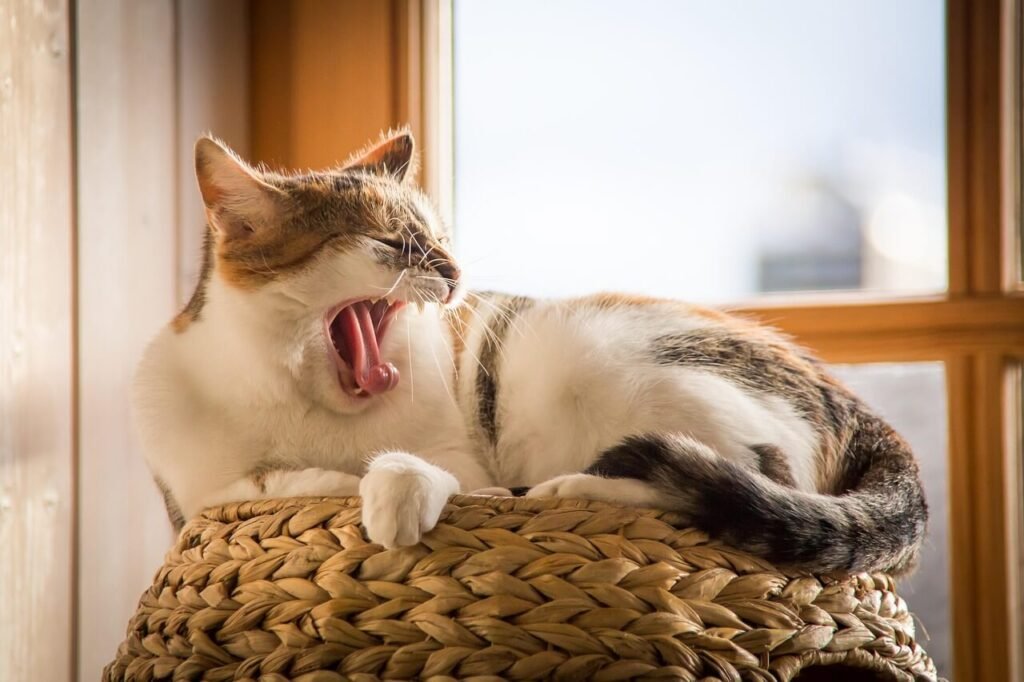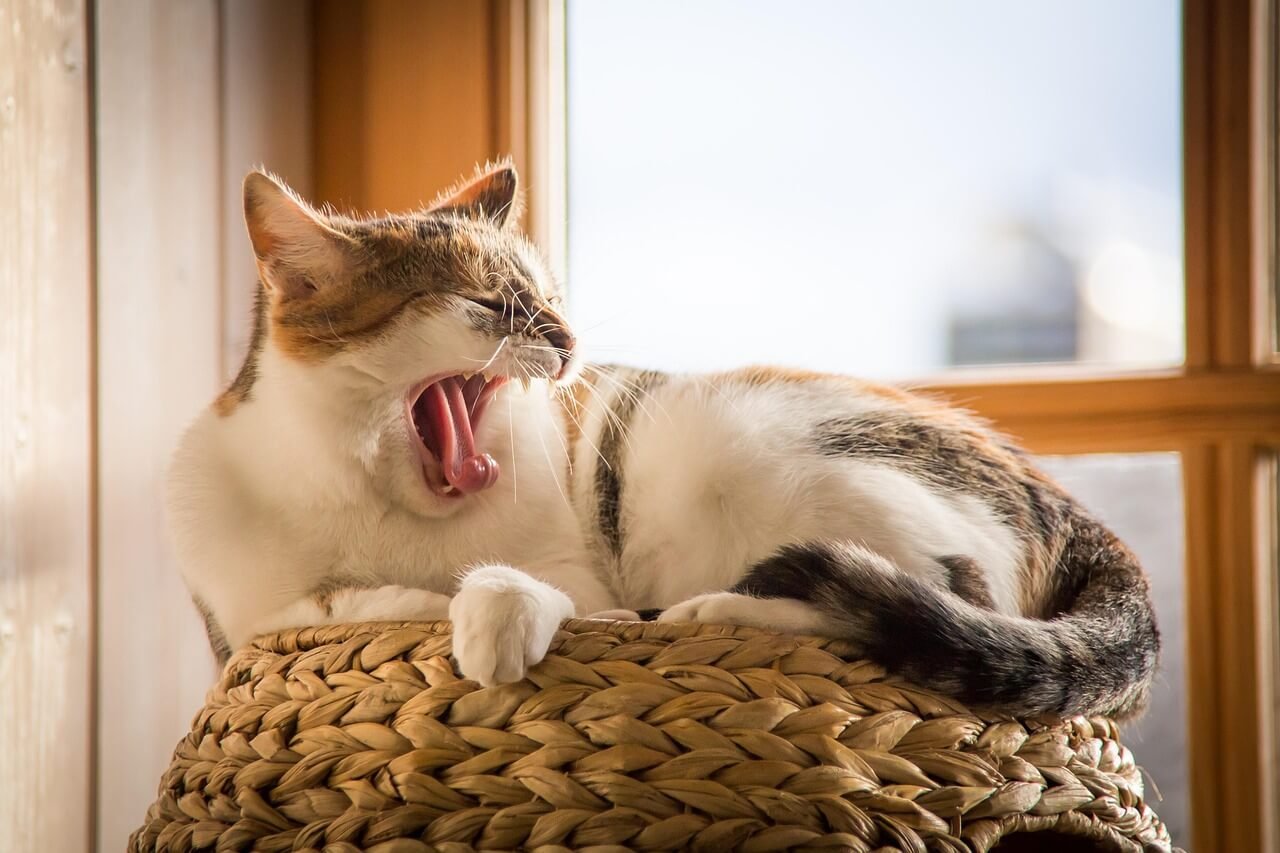Why Is My Cat Purring So Loud? Decoding the Melodious Mystery
If you’ve ever found yourself wondering, “Why is my cat purring so loud?” you’re not alone. Cats are enigmatic creatures, and their purring can sometimes leave us scratching our heads in curiosity. While we often associate purring with contentment, there’s more to this soothing sound than meets the ear. Whether your feline friend is curled up on your lap or lounging by the window, their loud purring might carry deeper meanings. In this blog post, we’ll explore the fascinating reasons behind your cat’s vocal vibrations and what they could be trying to tell you.
The Science Behind Cat Purring: What Makes Them So Vocal?
Cats are natural-born purrers, and understanding the mechanics of this behavior can help us appreciate it even more. Here’s a breakdown of the science behind your cat’s purring:
Vocal Cords and Diaphragm:
A cat’s purring originates from the larynx and diaphragm. When these muscles contract and relax rapidly, they produce the distinctive humming sound.Frequency Matters:
The frequency of a cat’s purr typically ranges between 25 and 150 Hertz. This range is believed to have healing properties for both cats and humans.Involuntary Reflex:
Purring is an involuntary reflex, meaning cats don’t consciously control it. It often happens automatically in response to certain stimuli.Not Just Happiness:
Contrary to popular belief, purring isn’t always a sign of happiness. Cats may purr when they’re stressed, anxious, or even in pain.Bonding Mechanism:
Kittens begin purring shortly after birth as a way to bond with their mother. This early behavior sets the stage for lifelong communication.
Understanding these scientific aspects can deepen your appreciation for your cat’s unique way of expressing themselves. After all, every purr tells a story!
Common Reasons Why Your Cat Purr So Loud
While the science behind purring is fascinating, the reasons behind it are equally intriguing. Here are some common explanations for why your cat might be purring loudly:
Seeking Attention:
Cats are masters at getting what they want. A loud purr might be their way of asking for food, playtime, or cuddles.Expressing Comfort:
If your cat is relaxed and purring loudly, it’s likely a sign that they feel safe and secure in their environment.Self-Soothing Mechanism:
Cats often purr when they’re nervous or uncomfortable. The sound acts as a calming mechanism, much like how humans hum to relax.Healing Themselves:
Studies suggest that the vibrations from purring can promote bone density and aid in recovery from injuries. Your cat might be using their purrs as a form of self-healing.Strengthening Bonds:
Purring can also serve as a bonding tool between cats and their human companions. It’s their way of saying, “I trust you.”
These reasons highlight the versatility of purring as a form of communication. Every loud purr could be a message waiting to be understood.
Check this guide 👉 Why Do Cats Lick Themselves? Best 7 Expert Behavior Tips!
Check this guide 👉 Why Is My Cat Meowing So Loudly? Best 7 Expert Behavior Tips
Check this guide 👉 Why Do Cats Love Sleeping Above Our Heads? Best 7 Tips!

Reasons for Loud Purring | Possible Interpretations |
|---|---|
Seeking attention | Your cat wants food, affection, or playtime |
Feeling comfortable | They feel safe and relaxed in their space |
Self-soothing | They’re coping with stress or discomfort |
Healing process | Their body uses purring for recovery |
Strengthening bonds | They’re expressing trust and affection |
How to Respond to Your Cat’s Loud Purring
When your cat starts purring loudly, it’s important to respond appropriately. Here’s how you can interpret and react to their vocalizations:
Observe Their Body Language:
Pay attention to their posture and facial expressions. Are their eyes half-closed, or are their ears pinned back?Check for Contextual Clues:
Consider the situation. Are they near their food bowl, or is it close to bedtime?Engage with Them:
If they seem to want attention, spend some quality time petting or playing with them.Provide Comfort:
If your cat appears stressed, offer reassurance through gentle words or a cozy blanket.Consult a Vet if Necessary:
If the loud purring is accompanied by other unusual behaviors, it might be time to visit the vet.
By responding thoughtfully, you can strengthen your bond with your cat and ensure their needs are met.
Misconceptions About Cat Purring
There are several myths surrounding cat purring that deserve clarification. Let’s debunk some of the most common misconceptions:
Purring Always Means Happiness:
While happiness is one reason, cats also purr when they’re scared, sick, or seeking comfort.Only Domestic Cats Purr:
Big cats like cheetahs and cougars can purr too, though lions and tigers cannot.Purring Is Harmless:
While generally positive, excessive purring could indicate underlying health issues.Cats Can’t Control Their Purring:
While it’s largely involuntary, some cats seem to use purring strategically to get what they want.Loud Purring Indicates Aggression:
On the contrary, loud purring is usually a sign of strong emotions, whether positive or negative.
Understanding these misconceptions can help you better interpret your cat’s behavior and respond accordingly.
The Role of Purring in Cat Communication
Cats are masters of non-verbal communication, and purring plays a key role in how they express themselves. Here’s how purring fits into their unique language:
Non-Verbal Cues:
Purring often complements other forms of body language, such as tail flicks or ear positions, to convey specific messages.Contextual Signals:
The meaning of a purr can change depending on the situation, such as when they’re hungry versus when they’re relaxing.Silent Conversations:
Cats use purring as a way to “talk” without making direct eye contact, which can be less intimidating for them.Building Trust:
A soft, consistent purr can signal that your cat feels safe enough to let their guard down around you.Expressing Needs:
Sometimes, a loud purr is simply their way of saying, “I need something from you.”
Purring is far more than just a sound—it’s a sophisticated tool in your cat’s communication arsenal. Understanding its nuances can help you better interpret their needs and emotions.
Health Benefits of Cat Purring for Humans
Did you know that your cat’s purring isn’t just good for them—it can also benefit you? Here’s how their soothing vibrations can improve your well-being:
Stress Reduction:
The rhythmic sound of purring has been shown to lower stress levels and promote relaxation.Lowered Blood Pressure:
Studies suggest that the calming effect of purring can help reduce blood pressure over time.Improved Mood:
Listening to your cat purr can release endorphins, which boost your mood and combat feelings of sadness.Enhanced Healing:
The frequencies of a cat’s purr may stimulate bone density and tissue repair in humans.Better Sleep Quality:
Many people find the gentle hum of a purring cat helps them fall asleep faster and stay asleep longer.
The next time your cat purrs loudly beside you, take a moment to appreciate the positive impact it might be having on your health.
How to Encourage Healthy Purring Habits
If you want to foster an environment where your cat feels comfortable expressing themselves through purring, here are some tips to consider:
Create a Safe Space:
Ensure your home has cozy spots where your cat can retreat and feel secure.Offer Positive Reinforcement:
Reward your cat with treats or affection when they purr in response to positive interactions.Maintain a Routine:
Cats thrive on consistency, so stick to regular feeding and playtimes to keep them content.Minimize Stressors:
Reduce loud noises or sudden changes in their environment, as these can make them anxious.Spend Quality Time Together:
Engage in activities like brushing or playing to strengthen your bond and encourage happy purring.
By nurturing a supportive and loving environment, you’ll not only encourage healthy purring habits but also deepen the connection you share with your furry friend.
Frequently Asked Questions About Loud Cat Purring
Is loud purring normal for cats?
Yes, loud purring is perfectly normal and can occur for various reasons, including happiness, stress relief, or seeking attention.
Should I worry if my cat suddenly starts purring loudly?
Not necessarily, but if it’s accompanied by other symptoms like lethargy or loss of appetite, consult a vet.
Do older cats purr louder than younger ones?
Not necessarily. Volume depends more on individual personality than age.
Can loud purring disturb other pets in the house?
Generally, no. Other pets are usually accustomed to the sounds cats make.
How can I encourage my cat to purr more?
Spend quality time with them, provide toys, and create a calm, loving environment.
Final Thoughts: Embracing the Symphony of Purring
Cats have a magical way of enriching our lives, and their purring is one of their most endearing traits. Whether your cat is purring loudly out of joy, comfort, or a need for attention, each sound is a testament to their unique personality and connection with you. By understanding the reasons behind their purrs, you can deepen your bond and ensure their well-being. So the next time you hear that melodious hum, take a moment to appreciate the beauty of your feline companion’s voice—it’s their way of sharing their world with you.
Dog Tapeworm Life Cycle: Best 7 Expert Tips! – Learn how tapeworms infect dogs, spot symptoms, and break the cycle with expert prevention strategies.
Anxious Cat Body Language: Best 7 Expert Tips! – Learn to spot signs of stress, understand triggers, and help your cat feel safe and relaxed.
Anxious Dog Body Language: Best 7 Expert Tips! – Learn to spot signs of anxiety, respond effectively, and help your dog feel safe and secure.
Is Breeding Dogs Bad? Best 7 Expert Tips! – Explore the ethics, benefits, and risks of dog breeding to make informed decisions for a better future.





